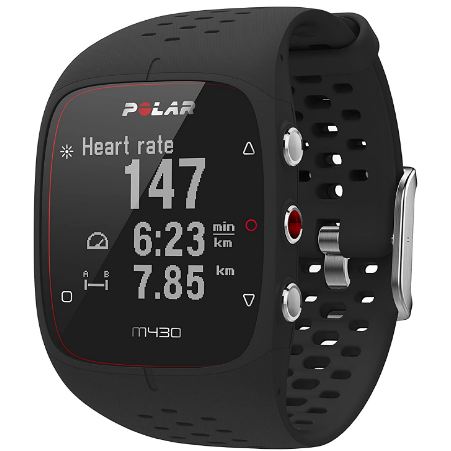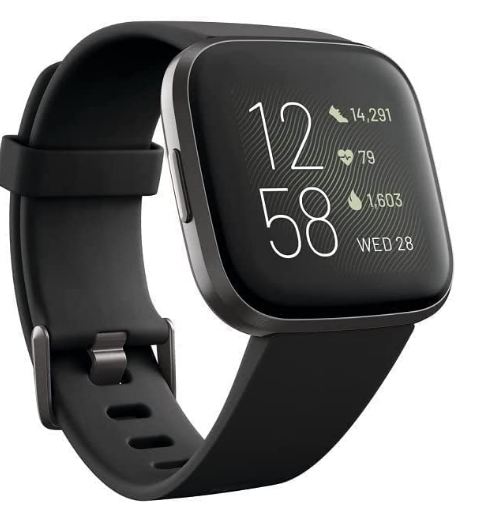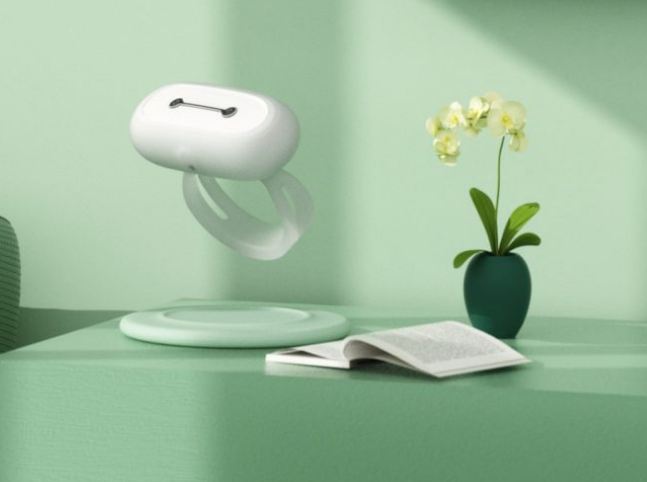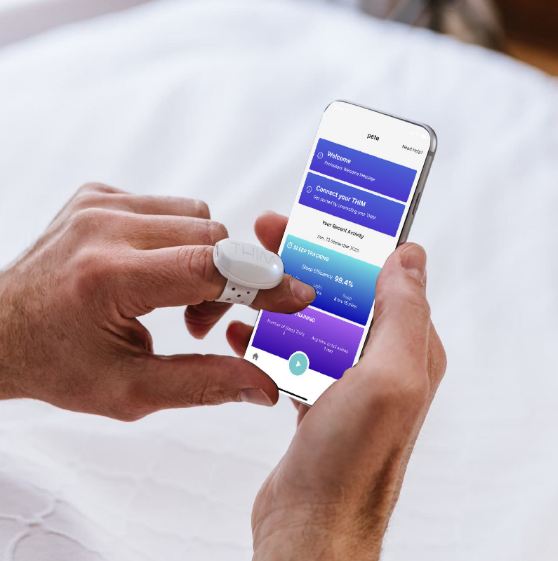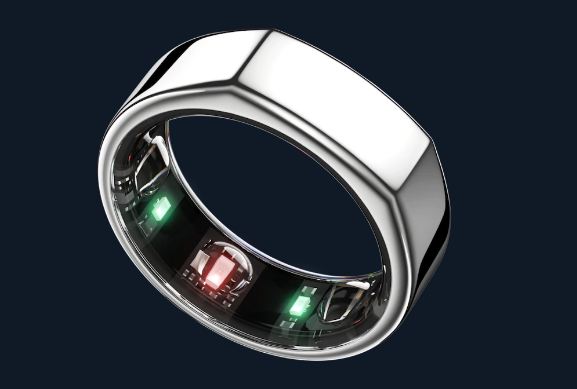Do you think about investing in a sleep tracker device or app?
Then, you have come to the right place.
The sleep tracker will help you determine and reveal how much of your life is spent sleeping.
Although they are not as accurate as a professional assessment of your sleep quality, sleep trackers can help determine the quality of your sleep and help you improve it.
This guide will discuss the top sleep tracking apps and devices, their reliability, and how to choose the best one for you.
What's a Sleep Tracker?
Table of Contents
A sleep tracker is an app or device that monitors some or all of your sleeping patterns. This measurement indirectly reflects how well you slept that night by using other physical indicators of sleep rather than relying on brain activity and eye movement.
The sleep tracker helps you understand how your sleep stages change and what quality sleep is getting. In addition, this information is used to identify potential breathing problems such as snoring and obstructive apnea that could affect a person's nighttime sleep quality.
The majority of wearables have an accelerometer that measures movement. These findings and other data points like heart rate make tracking those essential hours under the sheets easier.
Sleep trackers often have a microphone that detects movement noises, snoring, and other noises to determine how well you sleep. A few models also have an in-built thermometer, which monitors the temperature in your room and provides data about how it might affect your sleep.
There are two types of sleep trackers: wearables and non-wearables. Wearable devices can be worn around the wrist, while non-wearables rest underneath or above your mattress.
Both types can offer valuable insights into deep sleeping patterns, even though they might collect different data sets. First, however, each type must be calibrated correctly.
Wearables are made with the body in mind. They have sensors that monitor heart rate and respiration more directly than other wearables.
Non-wearables usually only measure vibrations, which can be valuable information if they are appropriately calibrated.
The data collected by tracking devices is processed through an algorithm. This allows users to review their sleep history and assess their sleeping quality quickly. Users can also get tips or tricks on how to improve. Based on their findings, some apps might also offer suggestions for improving the quality of your sleep.
Are Sleep Trackers Effective?
Numerous scientific studies have been conducted to determine if sleep trackers are as effective as they claim.
Technically speaking, sleep monitors measure your brain waves, heart rate, and other biometric data about a pre-designed sleeping chart.
The chart is used to analyze sleep patterns and determine how much time they spend in deep (REM-filled) or REM-filled (rapid eyes movement) sleep.
Research shows that tracking apps and devices can help people to understand their bodies while they sleep and when and how trackers can help them with their sleep timings throughout the day.
However, sleep trackers still depend on prediction models for their assessments even though they are accurate.
These insights may not be 100% accurate, but they can provide valuable insight that will improve your sleep.
We still need to do more research, but the promising research we have so far is encouraging. Some data suggests that multi-sensor trackers may provide nearly as good insights as PSG tests.
Why Should I Track My Sleep?

Tracking your sleep is a great way to improve your quality of sleep.
Tracking your sleep is a great way to help you.
- Sleep more
- Improve your sleep quality
- Understanding the causes of poor sleep
- Get up refreshed
You cannot monitor your sleep using data if you don't know when to improve or how a new behavior, such as weight loss, changes your sleeping pattern.
How To Choose A Sleep Tracker
There are so many sleep trackers available it can be challenging to choose the right one for you. Therefore, we have compiled a list with all the features of each type of tracker. This includes what they track and how accurate they are—as any drawbacks.
What You Need to Consider When Choosing a Sleep Tracker
Data Collected: The data collected by sleep trackers include heart rate, respiration, and snoring. Others collect data about sleep time, such as temperature, humidity, and sound level.
The best sleep tracker is one that captures your most important metrics. Make sure you carefully read the product details to ensure you are able to find the right product for you.
Sleep Analytics: Analytical for Sleep compares data from your device with scientifically proven patterns that can help you determine your sleep quality.
They provide charts showing how your sleep has changed over the years, explain how these factors are related, and calculate a daily score for your progress.
Value: Sleep trackers is a significant investment. However, you should not buy just the first one that you find to save money. The value of a sleep tracker is more than just its price. It also depends on the features it offers, how it affects your daily life, and how it impacts your health.
A high-end sleep tracker with valuable insights into your sleeping habits is more cost-effective than one that only provides limited information. This could cause people to make poor decisions about their health.
Shoppers should also consider monthly costs when comparing prices. Some apps come with no cost, while others require payment each month.
Smart Alarm: Waking up from deep sleep is more challenging than waking up from light sleep. Smart alarms allow you to set a time frame during which you must wake up. The tracker analyses your sleep to determine if you are sleeping well and when you need to be awakened.
Comfort: Most sleepers consider comfort to be the most important thing. Wearables are also comfortable since they come in direct contact with your skin. Fit is important.
Devices that go on or under the mattress are typically relatively thin, so you're unlikely to feel them. Likewise, they are usually very thin, so they won't hurt. If you are sensitive to the smallest lumps in your mattress, you might want to limit your options to rings and wearables.
Battery Life: How long the device lasts between charges is a deciding factor in choosing the right device to track your sleep.
You should plan on wearing your tracker all day. Most devices can last for at least one night, and some may last longer, depending on the model.
Display and Apps: Most sleep trackers use an app on their smartphone to display and analyze the sensor data. Make sure that your smartphone is compatible with this app.
Also, make sure to read reviews online and in-store before you buy.
Additional Features: Many sleep trackers offer additional features such as GPS, coaching, and integrations with other applications. These components can increase the functionality and insight of your device, but they also raise the cost.
What Kind Of Sleep Tracker Is Best For Me?
Choosing a device that suits your needs and allows you to collect data in a controlled manner is essential. In addition, you will feel refreshed and well-rested if you use the right type of tracker.
Sleep Tracking Watches
A watch-like device is the best way to track your sleeping habits. There are two types of smartwatches and wristbands.
Smartwatches are more complicated than regular watches. Smartwatches have many functions, including notifications and alerts and the ability to check apps, place calls, track your fitness and time.
The latest smartwatches, such as Apple's, can include biosensors that collect additional health information to give you even more insight.
How Do Smartwatches Track Sleep?
Although smartwatches represent the most advanced wearable technology available, they are limited in tracking sleep quality.
However, smartwatch sensors and fitness algorithms can provide valuable information about your nighttime habits.
The Fitbit Charge 2, which tracks respiration, snoring, and temperature, is a more advanced fitness tracker that can provide insight into what's happening in your body every night.
Products to Consider
The Polar M430, a fashionable device worn on the wrist, shows the time. The Polar M430 also features an accelerometer that detects motion which can help determine if the user is falling asleep based on their movements.
The technology of sleep Plus analyzes your sleep patterns, duration, quality and helps you visualize how you can optimize your experience.
The Polar M430 is available in three sizes: small, medium, and large. It's also available in white and black. In addition, polar offers a 2-year warranty.
The Lintelek Fitness tracker is wearable with many useful features and affordable prices. This device provides reliable data about sleep and can also track exercise. It is ideal for shoppers and athletes looking for versatility in a fitness tracking accessory. You can choose from 14 different colors, including rose gold. In addition, it can be adjusted to fit wrists of all sizes.
The water-resistant device also has incoming call and message vibrations and the ability to display certain notifications.
Fitbit is the most well-known brand of wearable fitness trackers on the market. The Fitbit Versa combines health tracking and smartwatch features for convenient everyday use.
The device monitors your sleep patterns and analyzes your wake cycle, sleep duration, and busy time. Although the Fitbit Versa has a 6-day battery, this depends on how often you use it.
The Fitbit Versa, a compact and feature-packed device, tracks your sleep patterns and provides ample opportunities for you to connect with others.
Sleep Tracking Rings
Sleep tracking rings monitor the quality of your sleep. They monitor your pulse and oxygen levels throughout each night. In addition, these devices can detect if you snore or wake up during REM cycles.
How do Smart Rings work?
Smart Rings are light, comfortable devices worn on one finger all day. Because it is small and lightweight, the smart ring will not cause any discomfort. In addition, it monitors your heart rate, SPO2 levels, and EDA, which is used in many wellness apps, such as sleep tracking.
Products to Consider
The GO2SLEEP Ring gives you detailed information about your sleep quality and helps you monitor and manage sleep apnea. It also offers advice and tips on how to get better sleep.
The smart ring is used with the companion mobile app SLEEP ON to monitor your sleep quality. The app measures your blood-oxygen, heart rate, Apnea-Hypopnea Index (AHI), and how often you toss or turn.
The SLEEP ON app also offers personalized sleep advice. This Smart Ring also generates smart alerts – such as when your blood oxygen levels drop due to poor posture or snoring. GO2SLEEP will alert you and capture this event.
The THIM Smart Ring works on the techniques of top sleep clinics around the globe. Just put the ring on when you're ready to go to sleep.
The THIM Ring monitors your sleep patterns based upon movement. It detects when you fall asleep and sends you a gentle vibration to get you up.
The sleep trials start within the first 60 minutes of bedtime. It tracks how long it takes users to fall asleep and when they get there again. Users can fall asleep faster if their sleep drive increases.
Oura rings are smart products that improve physical and mental health by promoting better sleep. It will help you align your sleep patterns with your circadian rhythm, which is the 24-hour cycle that regulates your mind and body.
The Oura monitors your heart rate, respiratory rate, and body temperature. It can even track finger and hand movements.
Other Types Of Wearables
There are many options for wearable sleep trackers. The most popular types include wrist trackers, wrist trackers, and watches. Some of these wearables include headbands and eye masks that feature advanced technology, such as monitoring brain activity and eye movements.
Sleep Trackers
The under-mattress trackers attached to your mattress infer sleep data from vibration and motion.
These devices are often small and discreet, making them an ideal choice for those who wish to monitor their sleeping habits without a device.
Most under-mattress trackers work with all mattresses available today. However, some may not work if your mattress is extremely thick or has a waterbed.
Products to Consider
The Tempur-Pedic sleep tracker is a tracking device that fits under your mattress and syncs to its corresponding app.
The sensor also analyses your bedroom environment, along with other metrics such as sleep quality, stages, and duration. The sensor measures temperature, humidity, CO2 levels, air purity, and temperature surrounding your bed.
The Sleeptracker is used with any mattress brand. In addition, it is compatible with Android, Google Home, Apple, and Amazon Alexa.
The Withings Sleep monitor can measure your sleep quality and duration. In addition, it measures your heart rate, breathing patterns, and movements to give valuable insight into how you slept last night.
The Withings Sleep monitors your sleep habits and gives you insight into how well you sleep.
The device communicates wirelessly with the app and automatically syncs data to the app when you get up in the morning.
The Withings Sleep is compatible with almost all mattresses, including innerspring, foam, and latex. It comes with a 1-year warranty.
The Beautyrest Sleeptracker works with all mattress brands and types, just like the Tempur-Pedic Sleeptracker. In addition, it is compatible with Alexa.
The alarm sends alerts at the best time for you to wake up. It also uses data from the Sleeptracker app for personalized tips that improve your sleep quality.
Apps for Sleep Tracking
Sleep-tracking apps can help you identify when you wake up and fall asleep.
SleepScore is a simple interface that offers a clean design and a straightforward interface. Sleep Cycle is another good option.
Sleep Cycle is an app for tracking your sleep patterns and helping you to understand how they are changing.
This is done by calculating the length of your sleep in each stage, such as deep sleep mode or REM, and measuring the intensity levels associated with these stages: light, moderate, heavy.
We love Sleep Cycle's clean interface and graphs, allowing users to view their sleep patterns easily.
SleepScore, an app that works on Android and iPhones, will help you to improve your sleep.
The free version gives general advice and keeps a record for seven days. However, the premium plans provide detailed information, such as when you are most likely to wake up during the night.
It also includes smart alarms that slowly increase volume while playing soothing music instead of loud beeping sounds, which keep people from feeling groggy after waking up.
Sleep Genius is the best sleep tracker on the market. NASA actually uses it to help astronauts get better sleep in space.
The app tracks your sleep patterns and provides graphs as well as advanced metrics. It also offers “genius” relaxation programs to help you fall asleep quicker. These programs use clinically proven sounds to induce deep sleep.
Sleep Genie uses an alarm clock that is unlike any other to wake you up when the time comes. It combines neurosensory algorithms (to stimulate specific areas of your brain), binaural beats, and more. This combination is used to retrain your brain to learn how to get awake refreshed.
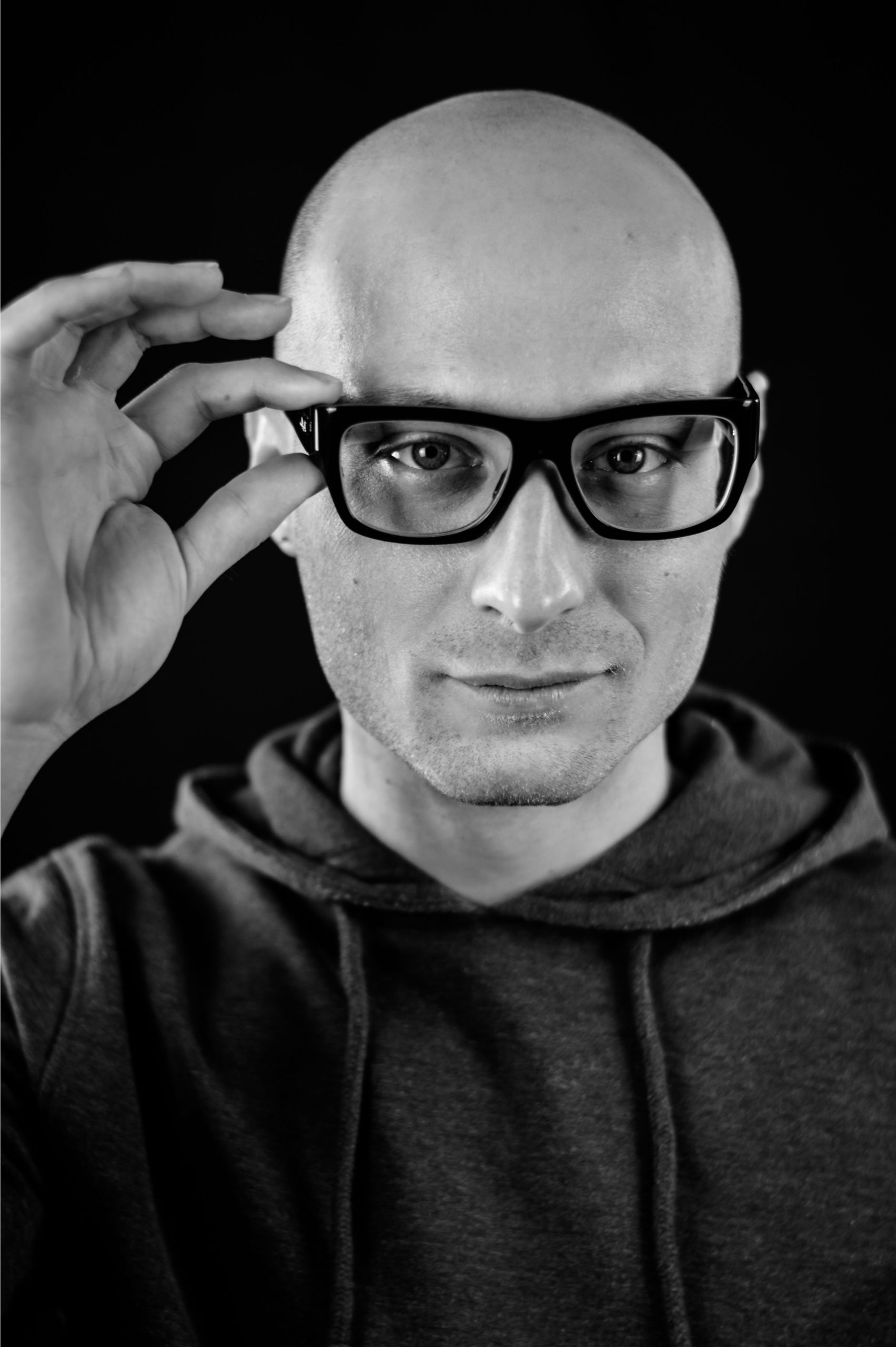
As a degreed engineer, I love new technology as much as you do (perhaps more). I also understand how to sort the best products from the rest. My team and I spend dozens of hours each week reviewing the best & latest products for your bedroom. Many are tested in-house, and others we break down based on our technical understanding. Whether you need a bed-cooling system, an adjustable bed, or a new CPAP machine – we've got you covered.

